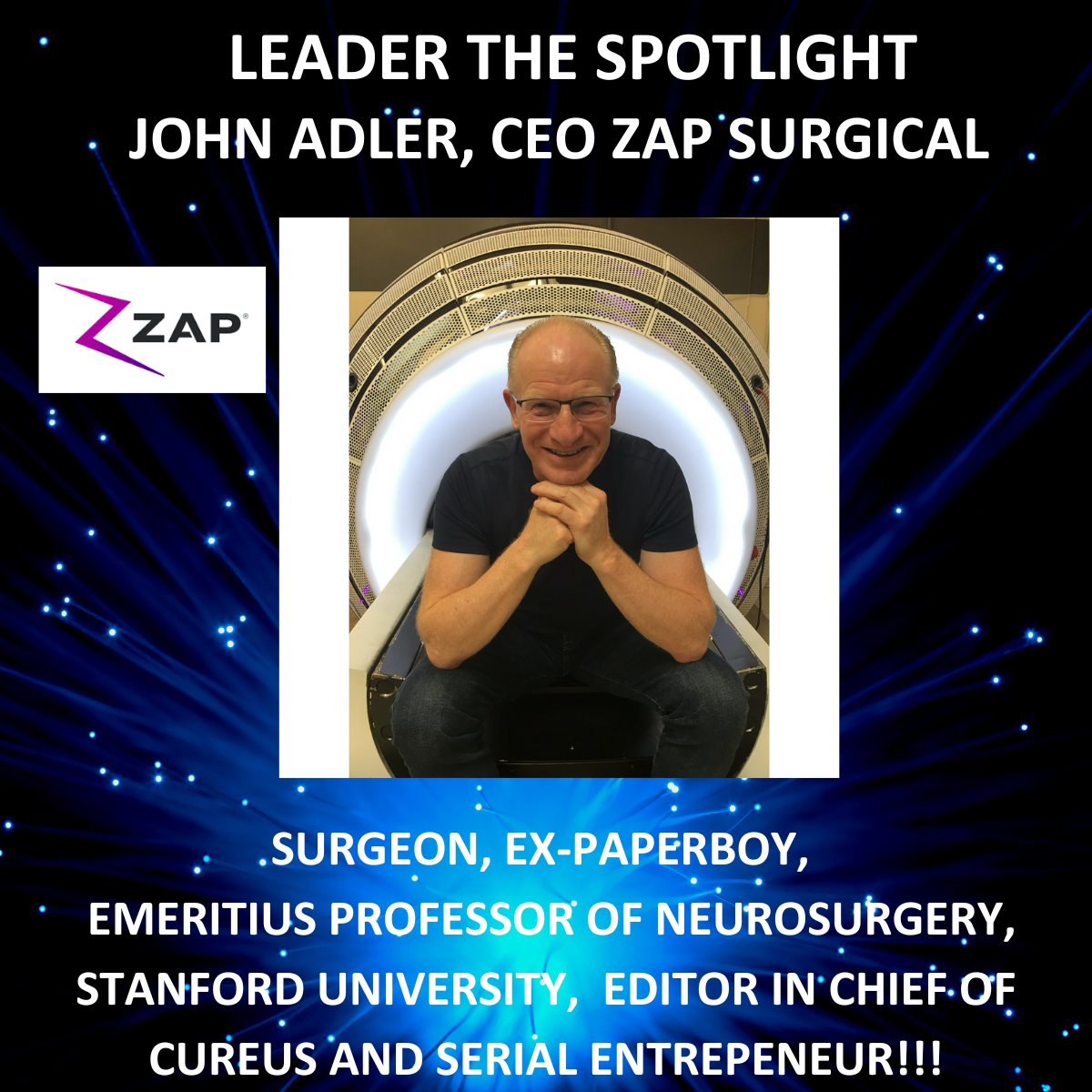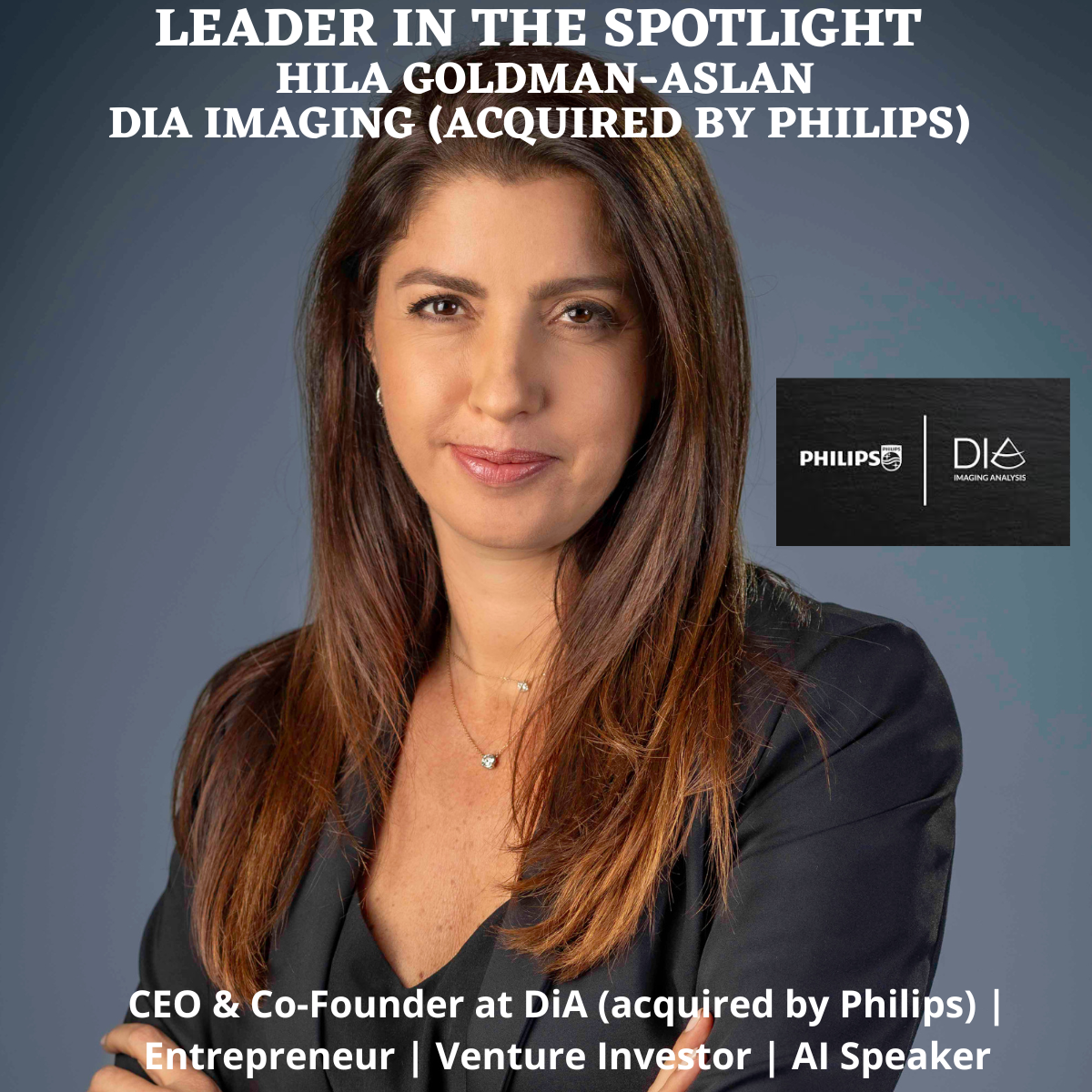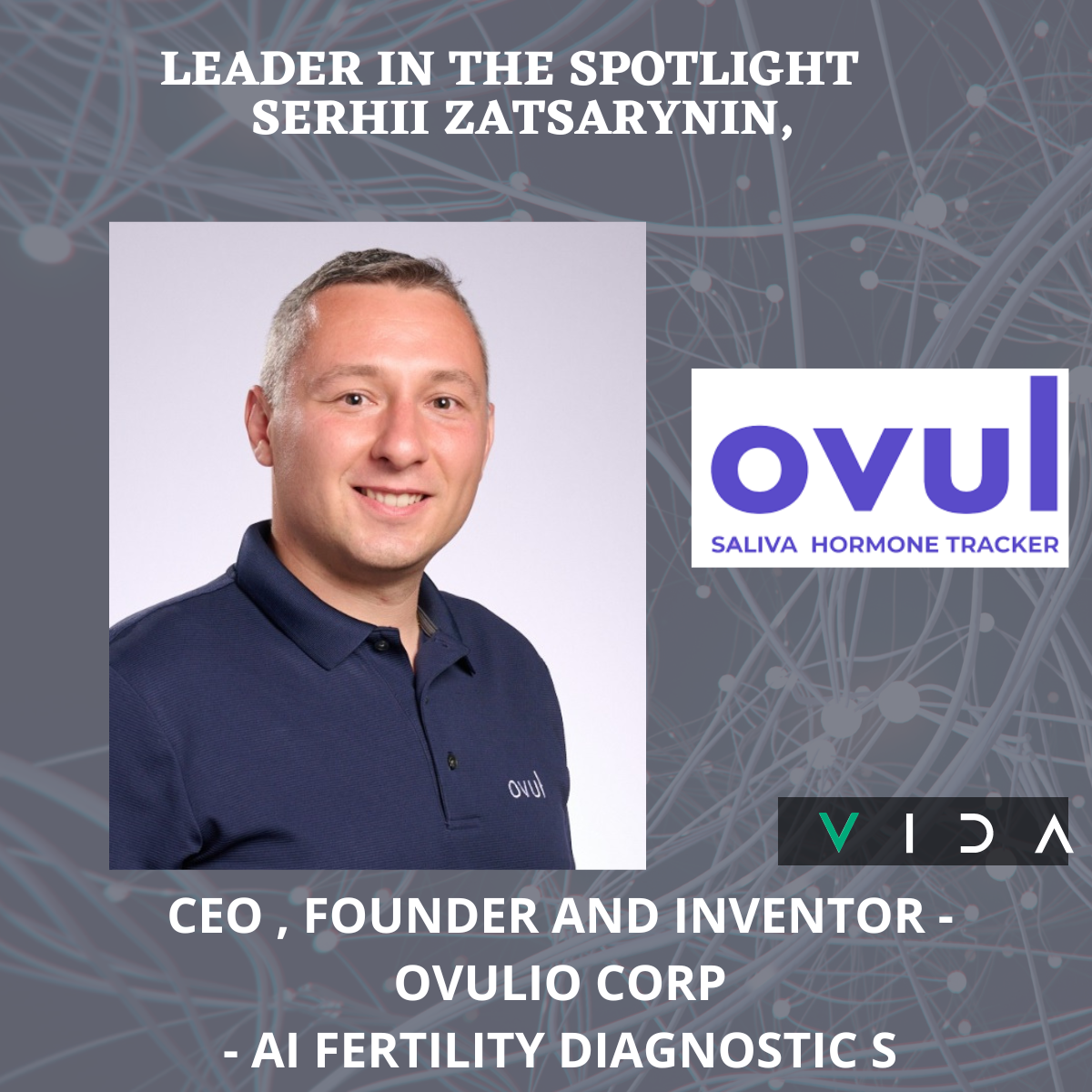
POSTED BY
Kirsty McConville
This Saturday (11th February 2023) marks the 8th International Day of Women and Girls in Science.
At VIDA, we wanted to recognise and celebrate some of the brilliant women in the market who we get to work with. We talked with 4 inspiring women of the market about their experiences and if they had any advice to offer for others looking to follow in similar footsteps.
Hopefully you find these interviews just as motivating as we have!
We’d love to hear a bit about yourself; your current role and business to start us off...
'I have recently left my role as VP, Head of R&D Europe Regional Center at Takeda to start a new venture. I am consulting with another Life Sciences company in their Regulatory Affairs team on a short term project and I’ve taken on a fantastic new opportunity to work at Impel Talent as their Europe Lead for Leadership and Coaching. I’m really excited to be following my passion of growing and developing people.'
Charmaine Reid
'I am a biotech and pharmaceutical executive known for the ability to accelerate drugs to the clinic, patient and market; balancing speed with scientific rigor. I have deep scientific and operational expertise in leading the discovery and development of new drug products, advancing innovative therapeutic programs and achieving milestones leading to successful regulatory filings and approvals.
Currently, I am providing strategic consulting and scientific advisory services to stealth phase biopharmaceutical companies focused on the discovery of innovative drug products by combining expertise in multiple therapeutic modalities and regulatory requirements to accelerate programs to address unmet clinical needs. The expertise area including development of translational sciences, biomarker strategies including precision medicine and diagnostic tools to accelerate drug development.'
Irina Koroleva
'I’m the CEO of OCON Healthcare, a pioneering company in the women’s health arena – we developed a platform to deliver drugs to the uterus in an innovative, safe, painless, and in a more anatomically fitting way. Moving away from harmful oral formulations and debilitating hospital procedures, the company - led by 85% women - has developed a next-generation 3-dimensional "smart" drug delivery platform to promote women’s uterine health safely and effectively directly at the target tissue.
OCON's first & only patented 3D uterine therapy delivery stent is the ideal carrier for any drug or substance to address >$35B markets such as abnormal / heavy bleeding (1 in 3 women), uterine fibroids (7-8 in 10 women), endometriosis (1 in 10 women), menopause, and more. Our goal is to introduce products that take the female anatomy into mind, created for women, and by women.'
Keren Leshem
'I am an Associate Director in Inspection Management for the PV Quality organisation in BMS'
Maite Legaria Yabar
What’s your background and what was your journey to this role?
'I started my journey in the Life Sciences industry 20+ years ago, working in an entry level role in Pharmacovigilance at Solvay Pharmaceuticals in the UK Affiliate. This was a fantastic place to learn about the industry and have to work in a range of different areas – from Drug Safety, Quality and Compliance to Regulatory Affairs. It gave me a great starting point and grounding. I don’t have a Science background but my strong operational background has really been able to add value, as it does take multiple skills to get a drug to market. I moved from Solvay to work in Shire Pharmaceuticals in their Regulatory Operations team - focusing on submission management and getting the dossiers compiled and published out to Health Authorities to get products approved and to patients. In my role at Shire, I had the opportunity to take on multiple different roles from creating a Business Operations functions from scratch, to heading up the Regulatory Information Management and Technology teams. I also led multiple projects, including integration activities, as the company expanded and grew – which gave me a greater exposure to the wider organisation and how the company functioned.'
Charmaine Reid
'When I was 15 years old, my biology teacher introduced me to the genetics. She deeply believed that new discoveries would impact our knowledge in molecular biology and will open incredible opportunities in the future.
My path to study genetics was set. After completing master’s degree and PhD in molecular genetics from the Institute of Cytology and Genetics, Russia, I was fortunate to begin career in academia at the Danish Academy of Sciences, Denmark conducting mammalian genome mapping; and at the University of Iowa Hospitals and Clinics, heading the cross-departmental functional genomics team focused on biomarker discovery, aimed to understand disease mechanisms with the goal to discover new drug targets by combining molecular genetics, bioinformatics and statistics.'
Irina Koroleva
'I grew up in the USA and moved back to Israel to join the Army. It was only after which, that I started working in the Bio-tech industry — initially involved in the accelerator programs that are widely available in Israel and later at an investment firm managing a portfolio company.
I moved on to large(r) pharmaceutical company in Europe soon thereafter, where I headed all of its corporate development activities - which was not the best experience for an entrepreneurial minded professional - which led to my work here at OCON where I, together with my team, made an incredible turnaround of a devastated company!'
Keren Leshem
'I am a pharmacist and I first enjoyed several roles as retail Pharmacists, but after 5 years I started an entry level job in GSK UK Safety department as contractor. After this first role, I progressed to a Medical Governance EU manager role, where I gained a lot of experience in several areas of Medical Governance, and I learnt what it meant to be a leader. I was later promoted to a director role in the department. In August last year, I moved to Quality Assurance role in BMS and I am enjoying and learning a lot.'
Maite Legaria Yabar
What brought you into the scientific industry?
'Chance brought me to the industry. I am originally from South Africa and when I moved to the UK I took a role in the industry. However, what has kept me in the industry are the people. I’ve had the most amazing opportunities to work with hard working, dedicated people who really are determined to bring lifesaving medicines to patients. I love to work with smart people who are passionate and who are working towards something important and which brings value. I also love that, despite not having a science background, I have been able to learn and grow and to bring value to the teams I work with.'
Charmaine Reid
'My transition to Scientific Industry was a natural progression from discovery of new drug target and understanding disease mechanisms, to leading the discovery and development of new drug products.
I started my carrier at the Novartis Institute for Biomedical Research where I supported multiple discovery and development programs; ultimately leading to the successful regulatory submission and approval of Cosentyx® (Secukinumab) for the treatment of Psoriasis, Psoriatic Arthritis, and Ankylosing Spondylitis.'
Irina Koroleva
'I chose to pursue a career in Science and Bio-Tech specifically for many reasons. I was always drawn to the curiosity and challenge of scientific exploration, complex problem-solving and the potential to make a meaningful contribution to the world. Science is a field that is so unique, large and constantly evolving and provides opportunities for ongoing learning and growth, which I love. It provides a platform for women to create and innovate, and to see the tangible impact of our work. In addition, it always gave me a sense of purpose and satisfaction working and leading in a field that is traditionally dominated by men.'
Keren Leshem
'I always wanted to get into the Pharma industry, but I thought I needed a lot of extra qualifications, or studies to go for it. For many years I was a pharmacist over the counter, until I decided to put in my CV and try to get an industry role. Surprisingly, after adding my CV in Monster, I was approached to be interviewed for my first role in a Pharmacovigilance department in GSK. I was so happy to have this first opportunity and a door opened to many other opportunities.'
Maite Legaria Yabar
What barriers/setbacks (if any) have you experienced as a female in this industry? How has this improved/got worse in the past few years?
'Overall I don’t feel like I’ve faced many barriers or setbacks as a woman. I have had really supportive managers and colleagues, in general. However, there have been a number of occasions where I felt my voice was not being heard and that I was not welcome at the table. I would say this was early on in my career, and I learnt as I became more senior – that I had a seat at the table – and I needed to use it – that it was my responsibility to ensure those who were not at the table were being represented. So I have grown my voice and even when I’m not feeling in a comfortable place, I make sure to use it.'
Charmaine Reid
'STEM fields, including biology, had ups and downs in ability to attract, retain and elevate females to leadership and positions of power. It is the job of CEOs and the leadership teams to understand that diverse teams require you to be innovative and make better business decisions, which is known to impact the bottom line. They (CEO and Leadership) need to hold themselves accountable and committed to know, monitor and improve their diversity commitments to better represent patients and their needs.'
Irina Koroleva
'Unfortunately, women still face many barriers when it comes to pursuing a career in science (and others), that can limit their opportunities. Women and female leaders are often underrepresented in many scientific fields, which can lead to a lack of role models and a culture that may not be inclusive or supportive of women - and we are still paid less than our male counterparts. We are often subjected to gender discrimination, stereotypes and unconscious biases, which can lead to a hostile work environment and impede our professional development and impacts how we are perceived and treated by others. Women also face a lack of visibility and recognition, which can lead to further discouragement. An additional big challenge is securing funding for research for women specific solutions, which can limit health outcomes for whole societies and discourage women from pursuing their scientific interests and advance their careers. Finally, there is the additional pressure of balancing family and career, which can make it difficult for women to stay in the field that requires long hours, travel and global communications.
However, there have been some efforts to address these barriers and improve the experiences of women in science. This includes increased awareness and advocacy for gender equality, mentorship programs, and initiatives to promote diversity and inclusivity in the workplace; I make sure to practice that at OCON everyday. While progress has been made, there is still much work to be done to create a scientific community that is truly inclusive and supportive of women. It's important to continue advocating for change and addressing the barriers that women in science face in order to create a more equal and supportive environment for all.'
Keren Leshem
'The barrier to be a leader – I was always too shy the first years in the Pharma industry and did not truly understand what I needed to become a leader; I never thought I would later do it.
In my role, I was supporting men directors and respected their experience and knowledge so much that I always followed their advice/opinion and I used to not give my own opinion at first. However, I slowly built some confidence and experience, and started to voice my opinions. Probably being young, less experienced and a woman makes you be shyer and less confident.
One of my bosses, was the person that gave me the most valuable feedback and pushed me to improve my leadership skills. She made me jump into the challenges that have made me the leader I am today. She asked me to take on initiatives and projects and helped me become more confident; I feel I grew so much with her mentorship!'
Maite Legaria Yabar
Do you feel the industry is set up to create equal opportunities?
'The industry has come a long way since I first started and we are definitely seeing a shift. There are many more women coming through the talent pipeline. There are also so many different careers you can move into within the industry – so despite what your degree is in, you can find exciting and challenging roles in a range of interest areas, which I also think is what is helping to bring diversity. Another reason I think this is improving is that Diversity, Equity and Inclusion has become an important element in the industry and many companies now have programmes to ensure we are selecting candidates across a range of diversities.'
Charmaine Reid
'While females represent majority of entry positions in industry requiring BS, MS and PhD, when it comes to carrier progression and advancement to leadership positions remains to be seen.
In my experiences, I often observed females becoming super-doers (exceptional subject matter experts) who continue to get more and more assignments, as their productivity to deliver exceptional work is high. Often, they have little or no insights on how to advance their career as it requires managers, mentors and sponsors to open doors for new opportunities, as well as invest time to develop associates who are interested and capable.
In addition, the decision about promoting and advancing females are made by male dominated management teams known to hire and promote males for their potential and females for the role they already performing.
Irina Koroleva
'Historically, the scientific industry has faced challenges in providing equal opportunities. Despite progress in recent years, women still face barriers to entry, advancement, and recognition in science, technology, engineering, and mathematics (STEM) fields. However, there has been increased awareness and efforts to address these disparities and promote gender equality in science. There is still much work to be done!'
Keren Leshem
'It is starting to take off, and it is getting better as far as I see. You can see more female leaders nowadays, although at the top of the industry there are still more men but I believe it will get there. In my experience I felt always supported, but I would say it is your manager that will help you or not to achieve your goals.'
Maite Legaria Yabar
How has your education impacted your career? (If at all)
'I would say in my last role, as VP Head R&D Europe Regional Center – having a science background would really have helped me to feel more confident and to be able to support the business better. However, I also found that people are very generous with their knowledge and happy to take the time to educate and support you. Overall, I feel I have been able to grow into a senior leader through my determination, my interest in learning and my passion and by volunteering to step up and take on new opportunities.'
Charmaine Reid
'I strongly believe that education is a backbone which gives us chances to make an impact and realize one's full potential. My entire life is a testament to an amazing opportunity I had, not only to live Russia in the middle of economical and political crisis as I had an internationally recognized scientific credentials (PhD), but an ability to adopt and advance in two countries I call my second (Denmark) and third home (USA).'
Irina Koroleva
'Education is key to overcoming these challenges and providing women with the knowledge and skills needed to succeed in science. My education played a crucial role in commencing a career in science. I started out pursuing a medical degree but realized that I wanted to contribute to the scientific community through business management and leadership rather than becoming a physician, and quickly changed my path to mirror those ambitions and completed my MBA. A solid education provides the foundational knowledge, skills, and critical thinking abilities needed to succeed in scientific fields. Most careers in science require at least a bachelor's degree, and many also require advanced degrees such as a master's or PhD. The specific level of education required often depends on the type of job, with higher level positions typically requiring more advanced degrees. Furthermore, education provides opportunities to specialize in a particular area of science and gain hands-on experience through research projects, internships, and laboratory work, all of which are valuable in preparing for a successful career in science. Education can provide women with the confidence and resources necessary to pursue a successful career in science and provide them with the tools to combat the gender disparities that still exist in the field.'
Keren Leshem
'Yes, my parents specially have always educated me to do what I want and to believe in myself. I never heard anything from them to stop me.'
Maite Legaria Yabar
How have you navigated creating a community of women in science?
'I had co-created a women’s network in Shire in London, in the early days of employee resource groups. This was a really great opportunity to network and to share across a range of functions. Since then, I’ve been passionate about developing employee resource groups in the companies and countries I’ve worked in. There is so much value in being part of a community where you can share and learn from each other. This is also a great way to develop skills you may not have the opportunity to develop in your role – by volunteering you get exposed to a range of new skills. This is something I plan to start up in my new role at Impel Talent, connecting like-minded individuals in our industry.'
Charmaine Reid
'In my entire life, I always had female and male mentors who inspired me to be authentic in building relationships based on trust and by creating conditions that allows all team members to bring their unique perspectives and experiences to the table.
As a coach and mentor, I invest in building relationships, able to inspire others, have patience allowing for differences and have intuition about others.
I am not afraid to hire people reporting to me who are smarter than I, as I am not afraid to lead with authenticity requiring to be vulnerable when it comes to “making others better as a result of your presence and making sure that impact lasts in your absence” (Sharyl Sandberg).'
Irina Koroleva
'Creating a supportive community of women (also in science) can help to foster a sense of belonging and provide a safe space for women to ask questions and share experiences. I always preach that network is everything! This can be accomplished by creating online spaces for women to connect, share resources, and offer mentorship programs. I’m happy to serve as mentor on various programs to women entrepreneurs starting out their ventures in scientific fields specifically creating impact for women’s health. Raising awareness and highlighting the achievements and success stories of women in science can help to inspire and motivate other women to pursue careers in this field and can also help to break down gender stereotypes and biases. But ultimately it comes down to providing access to resources such as funding, training, and professional development opportunities to support the careers of women in science and promote gender equality – I make sure to enable that at OCON and support other institutions in doing the same.'
Keren Leshem
'I am 100% supporting women in my team; I am also a volunteer mentor for Brunel university where I mentor student of underrepresented backgrounds. I get to understand the challenges of young women in science and may see the glimpse of their culture barriers sometimes.'
Maite Legaria Yabar
What advice would you give to girls aspiring to step into this industry?
'There is such a wide range of different roles, requiring different skills and giving you different experiences and opportunities. Explore the landscape. Reach out to people on LinkedIn who have interesting / cool sounding job titles and ask them for some time to explain what they do. Go to job fairs. Find a mentor – my personal experience is that most senior leaders are happy to provide some time to guide and mentor young people.'
Charmaine Reid
- 'Knowledge is your power. Never stop learning new skills and expertise as industry will continue to accelerate and future opportunities will depend on your ability to stay relevant.
- Discover your superpower as no-one will be able to outperform your passion.
- Build the sounding board of your peers, mentors and sponsors from early in your career.
- Be genuine in your intentions and share generously all you learn with new generations.'
Irina Koroleva
'Believe in yourself: Confidence and determination can help you overcome any challenges you may face.
Seek out mentors: Having someone who has been through similar experiences can be a valuable source of guidance and support.
Network and collaborate: Building relationships with others in your field can lead to opportunities and exposure to new ideas.
Speak up and make your voice heard: It's important to advocate for yourself and your ideas in order to contribute to the scientific community.
Don't be discouraged by setbacks: Science is a field that requires patience and perseverance. Don't let setbacks discourage you from pursuing your goals.
Be persistent: Women still face challenges and obstacles in the scientific field, but persistence and hard work can help overcome these barriers.
Seek out resources for support: Organizations and groups that support women in science exist to provide resources, mentorship, and networking opportunities.'
Keren Leshem
'I say: You can do anything you want; it is all about hard work, believe in yourself and give it a try. This industry is quite broad and interesting and has plenty of options; it is really multidisciplinary. I’d say to not limit yourself and always try.'
Maite Legaria Yabar
Is there anything else you’d like to add that you feel would really help highlight the importance of more women & girls being inspired to work in this field?
'Whatever your area of interest, there will be a job for you in the life sciences industry. Trust in yourself. Put your hand up. Volunteer. Get involved and speak up. The life sciences industry really is a fantastic field to grow in and remember what you are ultimately doing – bringing medicines to patients…'
Charmaine Reid
'The growth mindset starts with you. Never stop learning and don’t think of success as a destination. Think of it as an achievement towards your mastery (Reference: Simon Sinek: The Infinite Game).
I describe my mindset as "You can be a leader when you are no longer driven to grow you, but rather growing others" as a part of my life journey described by my friend and mentor, Eugina Jordan in her upcoming book to be published in May 2023.'
Irina Koroleva
'I believe there are several things that can help to inspire more women and girls to pursue careers in science such as visibility of female role models - highlighting the achievements and successes of female scientists can help to dispel stereotypes and show girls and women that they too can have successful careers in science especially when it comes to women’s health that will be immediately catering to taking care of our bodies and health specifically. I was recently named 1 of 100 women of influence by Entrepreneur Magazine next to Jennifer Lopez and other celebrities - because of the work my team and I do in women’s health. If all else fails with our message then know that scientific work can also make you a celebrity.'
Keren Leshem
Women sometimes follow an old fashion pattern to be at the back seat; but this is a big mistake. There are many girls and women who are meant to be great contributors in science and fantastic leaders (I have met a lot of them).
Identify your paradigm, cultural and mental barriers inside yourself and work to replace them with those actions that will take you closer to the professional you want to become. It is only small steps, but they will take you far.
In the pharma industry, women have incredible resilience and leadership skills, they are team players and have a great sense of community. I was very lucky to have 3 amazing women bosses that have developed me and have made me step up to the leader I am today.'
Maite Legaria Yabar
Recommended Resources from our Women in Science:
Podcasts
- 'School of Greatness' - Lewis Howes (interviews and themes of personal growth)
- 'Women in Science' Podcast - by leading universities https://podcasts.ox.ac.uk/series/women-science
- 'Dare to Lead'
- 'Unlocking Us'
- Hidden Brain
- Between Biotech Waves
- BioTech IQ
- Business of Biotech
Ted Talks
- 'The Power of Vulnerability' - https://brenebrown.com/videos/ted-talk-the-power-of-vulnerability/
- 'Listening to Shame' - https://brenebrown.com/videos/ted-talk-listening-to-shame/
Books
- How Women Rise (2018) - Marshall Goldsmith & Sally Helgesen
- What Got You Here Won't Get You There (2010) - Marshall Goldsmith
- Triggers (2015) - Marshall Goldsmith
- Why Women: The Leadership Imperative to Advancing Women and Engaging Men - Jeffry Tobias Halter
- Think Again: The Power of Knowing What You Don't Know (2021) - Adam Grant
- The Infinite Game (2019) - Simon Sinek
- Start with Why (2009) - Simon Sinek
- Give and Take: A Revolutionary Approach to Success - Simon Sinek
- The 5 Levels of Leadership: Proven Steps to Maximise Your Potential (2011) - John C. Maxwell
- Leadership and Self-Deception: Getting out of the Box (2000) - Arbinger Institute
- The Anatomy of Peace: Resolving the Heart of Conflict (2015) - Arbinger Institute
- The Outward Mindset: How to Change Lives and Transform Organizations (2018) - Arbinger Institute
- The Five Dysfunctions of a Team (20th Edition): A Leadership Fable (2002) - Patrick M. Lencioni
- The Advantage: Why Organizational Health Trumps Everything Else In Business (2012)
- What You Do Is Who You Are: How to Create Your Business Culture - Ben Horowitz
- Influence, New and Expanded: The Psychology of Persuasion - Robert B. Cialdini
- Never Split the Difference: Negotiating As If Your Life Depended On It - Chris Voss
- Multipliers, Revised and Updated: How The Best Leaders Make Everyone Smarter - Liz Wiseman
- The Orange Revolution: How One Great Team Can Transform The Entire Organization - Adrian Gostick
- Untamed - Glennon Doyle
- Fierce, Free and Full of Fire - Jen Hatmaker
- Inclusion Revolution: The Essential Guide To Dismantling Racial Inequality in the Workplace
Associations - organisations that advocate for women in science
- Association for Women in Science
- 500 Women Scientists
Other
- Brene Brown - https://brenebrown.com/about/
- Follow inspiring female scientists and professionals on LinkedIn
A huge thank you to Charmaine, Irina, Keren and Maite for taking the time to speak to us and celebrate the International Day of Women and Girls in Science.



